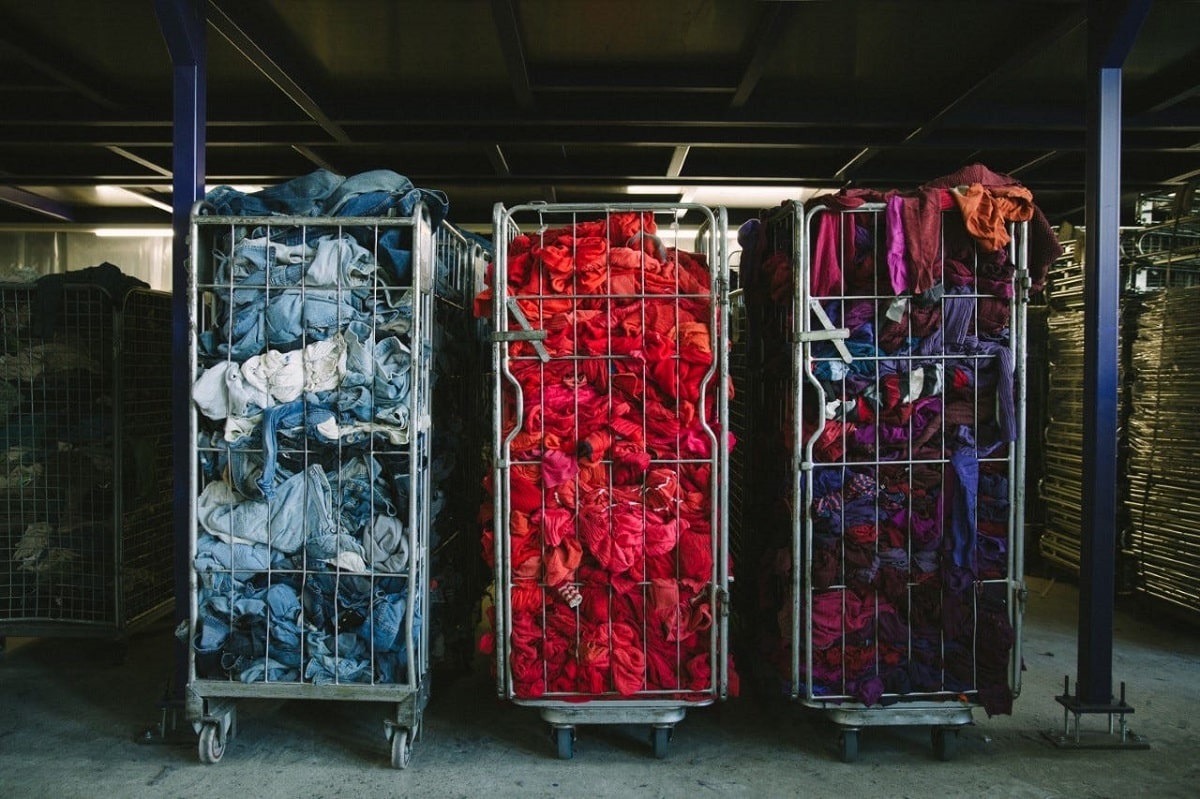1
HOME > Business >
10 OF THE BIGGEST ETHICAL CONCERNS IN THE FASHION INDUSTRY
Written by Menswear Style in Business on the 11th July 2023

When you picture the fashion industry, images of runway shows or chic boutiques might spring to mind. However, there's a less glamorous side that demands attention: its ethical concerns. From sweatshop labor and child exploitation to waste production and environmentally damaging practices, the industry is fraught with issues that must be addressed. As consumers, we need to understand these concerns better and support ethical clothing brands in response.
10 of the Most Significant Ethical Concerns in Fashion
Whether you’re buying new suits or second-hand, this article will explore some of these biggest ethical issues in fashion that you should pay attention to, as we all need to make a change.

1. Sweatshop Labor
It's no secret that many well-known fashion brands outsource their production to countries where labor is cheap, and regulations are minimal, often resulting in poor working conditions. As a conscious consumer, you can look for ethical clothing brands that ensure fair labor practices.
2. Child Labor
Child labor is an alarming issue in the fashion industry. This practice often goes unnoticed due to subcontracting, which places young children in textile production roles instead of encouraging traditional educational pursuits. The thought of children forced into such labor is heartbreaking.
3. Exploitation
In the fashion industry, exploitation is rampant. Examples include forced overtime and inhumane working conditions that are glossed over by the latest trends and styles. This largely invisible facet of exploitation is an ethical issue we must address to push for real change in the industry.
4. Waste Production
Fast-fashion retailers promote the rapid turnover of trends, leading to significant volumes of discarded garments contributing to landfills. This issue emphasizes the need for sustainable fashion and mindful consumer habits to limit waste and reduce environmental impact.
5. Pollution
Pollution is a severe downside to fashion production. Particularly, textile dyeing is the industry's second largest water polluter globally. This pollution affects not just our environment but also the health of communities near manufacturing locations. It's an urgent call for sustainable practices.

6. Overconsumption
Overconsumption in fashion is closely linked to the fast-fashion model. By continuously pushing low-cost garments into the market, consumers are encouraged to buy far more than they need. This drives waste production up and adds another ethical concern for the conscious consumer.
7. Materials Sourcing
Materials sourcing in the fashion industry pulls heavily on our planet's resources. Whether it's metals for zippers or cotton for t-shirts, these extraction processes can harm the environment if not responsibly managed. This issue underscores the need for sustainable resource use.
8. Animal Cruelty
The use of fur and exotic skins remains controversial. Some argue that as long as animals are bred for this purpose, it’s acceptable, while others view it as cruel, especially when other options exist. This challenges our assumptions in our pursuit of a more ethically driven industry.
9. Transparent Supply Chains
Transparent supply chains are critical in the fashion industry. When brands obscure their sourcing and manufacturing processes, they make it near impossible for consumers to make informed decisions. This lack of transparency is a major ethical issue that needs addressing.
10. Non-Inclusive Sizing
Non-inclusive sizing in the fashion industry promotes unhealthy body images and discrimination. When brands cater only to specific sizes or body types, they inadvertently marginalize other groups. This lack of inclusivity is an ethical concern that calls for more diversity in the industry.

In Conclusion…
As we come to understand the darker side of the fashion industry, it's crucial not to feel overwhelmed but rather empowered. Empowered to make better decisions, support ethical clothing brands, and spread awareness about these pressing issues. After all, each purchase we make influences the direction the industry takes in the future—for better or worse.
Trending
2
3
4
5
6
7
8
9
10









